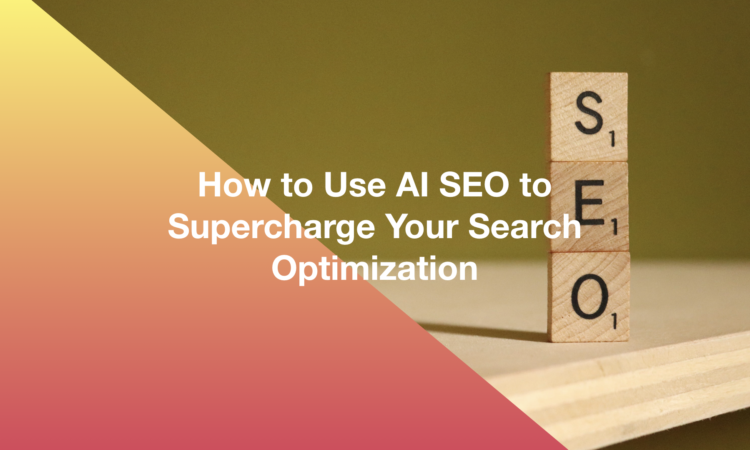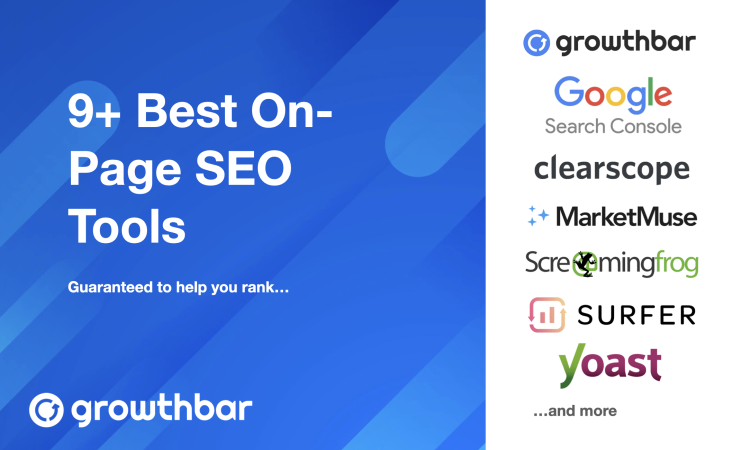- Write With AI in Your Brand’s Voice with GrowthBar - April 21, 2023
- How Long Should a Blog Post Be? [2025] - April 14, 2023
- 13+ Best ChatGPT Prompts for SEOs [2025] - April 14, 2023
Ended soon
AI SEO is the use of artificial intelligence — like natural language processing — to improve Google rankings.
The SEO industry is beginning to widely adopt AI… and you can too. There are entirely new categories of software tools that make AI super accessible and affordable for marketers.
I’ve been in the SEO industry for over a decade.
Around 2014, I started seeing “AI SEO” tools called article spinners. Article spinners are software programs that generate text variations from input text. You can probably imagine how that could be useful for content creators and bloggers.

The problem is, these early tools weren’t very good. The copy they created was limited, unnatural, and not exactly strong enough to rank on Google.
But the world has changed significantly. Huge organized data sets and natural language models like GPT-3 are making SEO and real AI converge faster than ever before.
Today, you can harness AI for a number of different SEO use cases. AI can assist with:
- SERP analysis
- Writing content
- Optimizing webpages
- Voice search
- And translating content into foreign languages
While nothing can replace humans (yet), AI can make search marketer’s lives much easier (and more fun).
Read on to learn more about how you can harness AI for SEO.
Table of Contents
What is Artificial Intelligence?
The term artificial intelligence (AI) is used to describe a broad range of technologies, including automation, which is the use of machines to do tasks that would otherwise require human intervention.
The term Artificial Intelligence (AI) has been around for a long time. The earliest example of AI is a 1951 checkers-playing computer. However, the term is not the same as the technology. Computers have been able to do things like play checkers for decades using heuristics.
But modern AI is something that goes beyond that.
Programming languages like Lisp and subsequently, modern languages like Perl, Python and Ruby make it possible for computers to parse complex language, images and symbols and “learn” from completing tasks.
The result is software that can do incredible things like understand language, identify compelling landing pages, chat with customers, and much more.
Benefits of AI SEO
Google itself is an AI.
The Google engine has always been driven by algorithms that automatically generate a response to each query.
But these algorithms amount to a set of definite rules. When you consider that 15% of Google searches done by users have never been seen before, rigid algorithms don’t work particularly well. As such, Google has incorporated deep learning into its search engine.
One of the best ways to meet Google’s mighty match is by using your own AI strategies for SEO. Doing so will enable you to move faster and stay ahead of Google.
5 ways to harness AI SEO for your business
1. AI SEO Content Creation
Content is the backbone of almost any SEO strategy. The problem is, content takes a lot of time to create and optimize.
AI is changing that.
Content generators like GrowthBar and Copy AI use natural language processing to create completely unique, AI-generated content FAST.
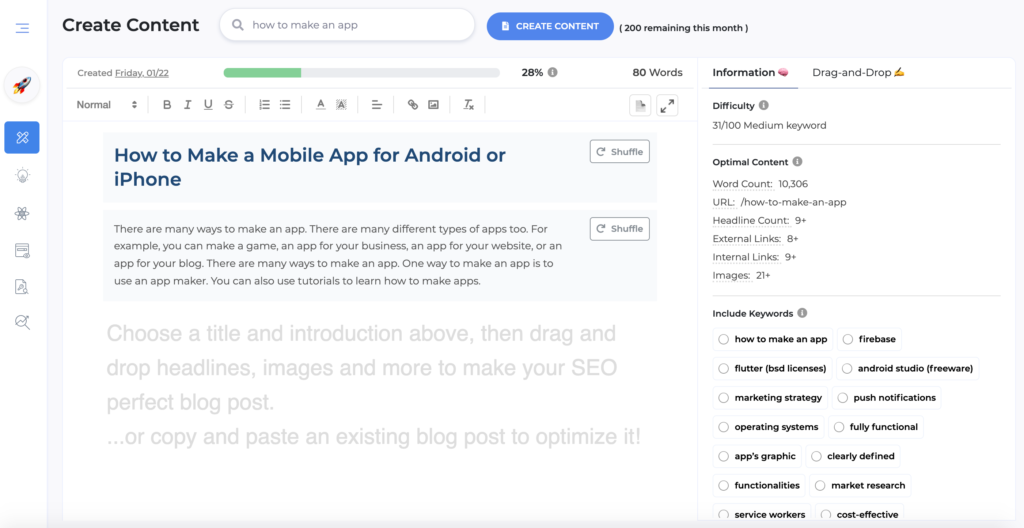
So how do these tools work? Machine learning algorithms use statistical methods and learn to perform tasks based on training data they are fed, and adjust their methods as more data is processed. Using a combination of machine learning, deep learning and neural networks, natural language processing algorithms hone their own rules through repeated processing and learning.
All that means is that content generation tools harness huge language data sets from across the internet and effectively “learn” how to produce content with the click of a button.
Content generation tools can save you a ton of time in creating content. These tools can:
- Summarize text
- Write social media copy
- Create blog outlines
- Answer FAQs
- And so much more
And they do all of this in slick interfaces:
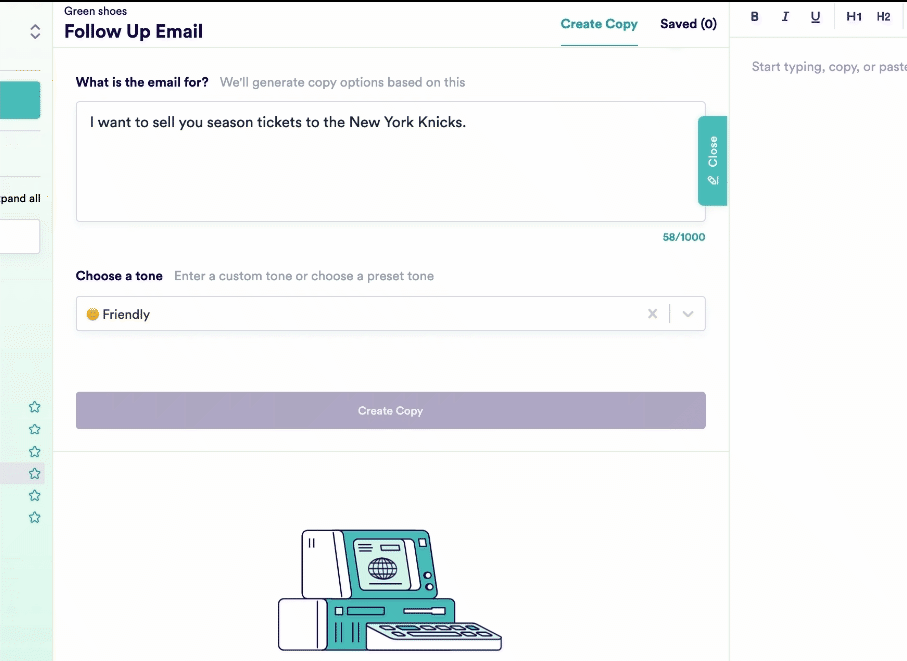
So how good is the content produced by AI? Really good.
This is what GrowthBar produced for me for the query “things to do in San Francisco.”
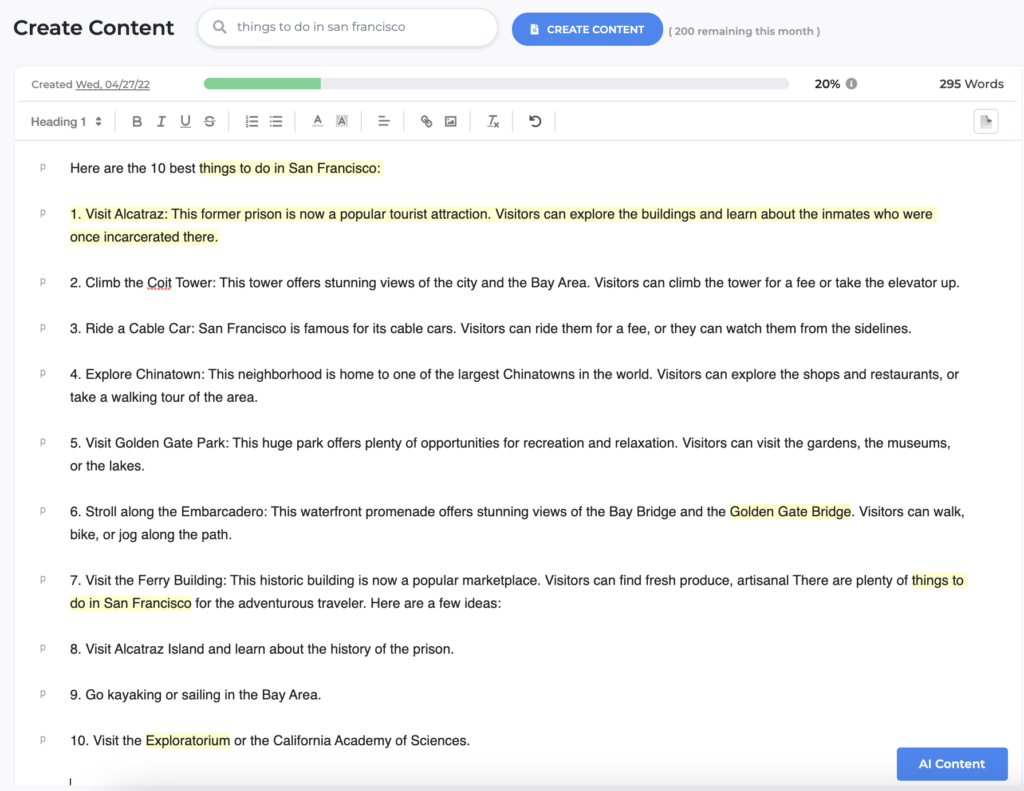
Pretty incredible right?
Imagine how much time you can save creating content using AI.
But do know: GPT-3 and related language models aren’t perfect. Editing is still required to optimize articles and rewrite incongruent AI outputs. But these models are improving every day.
Also read: The 11+ Best AI Marketing Tools
2. AI for UX
UX and UI really matter for SEO.
The future is bright for UX and UI design with AI. For instance, Adobe’s Sensei personalizes page experiences and uses your site data to create more seamless experiences for your users. Of course, this is helpful in a number of ways, one of which is SEO.

Imagine if your design team could create site flows and designs with machines helping determine which photos and text content belong on what pages, depending on different user segments. Another AI-powered SEO tool, Market Brew, can mimic search engines and give recommendations on what you can do to improve your website’s UX.
What’s best for users is best for Google. After all, some of the primary signals Google uses in its ranking algorithm is dwell time — how long users stay on your site and interact with your pages. Imagine if you could optimize your UX/UI with the power of AI.
While the use of AI in UX/UI design is very new, I predict it will become the norm in a couple short years. SEOs who pay attention will be able to generate huge value in creating great user experiences.
Also read: Why UX and UI Really Matter for SEO
3. AI Translation
The idea of translation has been around for centuries, but the internet has made it a lot easier. Google Translate and DeepL are free and easy-to-use online translation service that offer more than 100 language pairs. Anyone can use it, and it’s really easy.
Why is this helpful for SEOs?
Because the majority of the world doesn’t speak English! Only about half of websites and Google searches are in English.
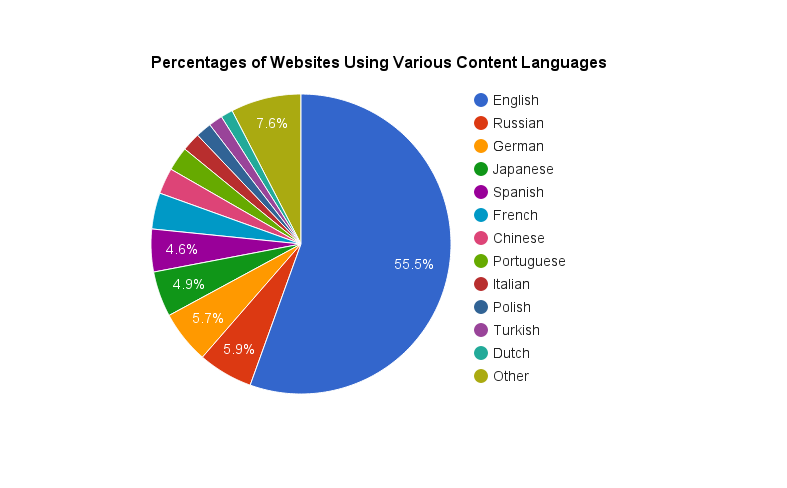
If you’re in a niche that’s applicable to a foreign audience, you should consider expanding your SEO internationally. I’ve read multiple stories of bloggers who were able to increase organic traffic by 47% or more just by translating articles.
Use Google Translate or DeepL and (and hopefully a native speaker to proofread) to translate your best articles into foreign languages. Then, make sure to use the hreflang tag to tell Google this is a variation on your existing page.
This is one of the easiest ways I’ve come across to harness the power of AI for your SEO efforts.
4. AI Content Planning and Optimization
Large data sets and data synthesis make it possible to optimize your content for SEO using AI.
Think about how game-changing tools like Grammarly are. Grammarly enables users improve their written grammar by correcting spelling, suggesting verb tense changes, suggesting a stronger synonyms, or offering a clearer sentence structure.
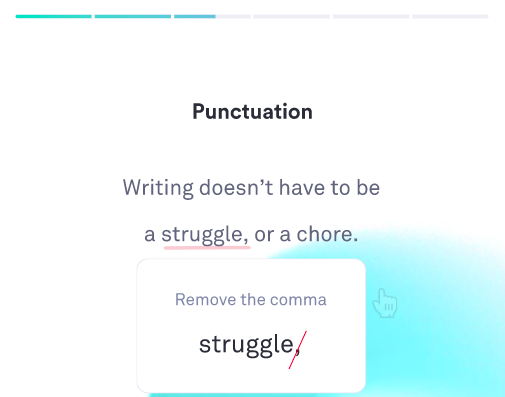
From a technical perspective, this is really complicated stuff.
It used to be that you and your SEO writing team had to create content from scratch and then hope you adhered to all grammatical best practices along the way. You had spellcheck, but that was it.
But Grammarly changed that.
They employ a team of computational linguists and deep learning engineers that write code to learn the rules and patterns of good writing. They do this by analyzing millions of sentences from research corpora (a corpus is a large collection of text that has been organized and labeled for research and development purposes).
What that all means is Grammarly uses AI to make your content more suited for Google search.
Grammarly isn’t the only tool that harnesses AI for content optimization.
Another tool that really impresses me is MarketMuse. MarketMuse features a product that enables you to plan content with the power of AI. MarketMuse can scan your site and a topic and surface content opportunities based on large data sets.
What this means for you is a stepwise roadmap for improving organic search.
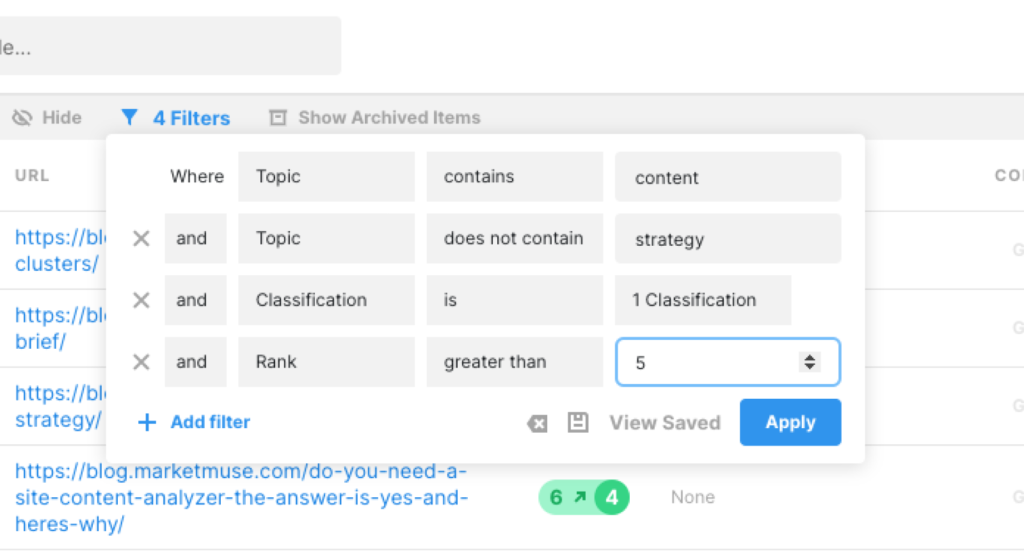
5. Optimizing SEO for Voice Search
As Google continues to shift its focus to voice search, it has become more imperative for websites to optimize for voice search SEO (VSEO).
55% of internet users use voice search to ask questions on their smartphones. And way more people than I thought are using smart speakers to Google search.
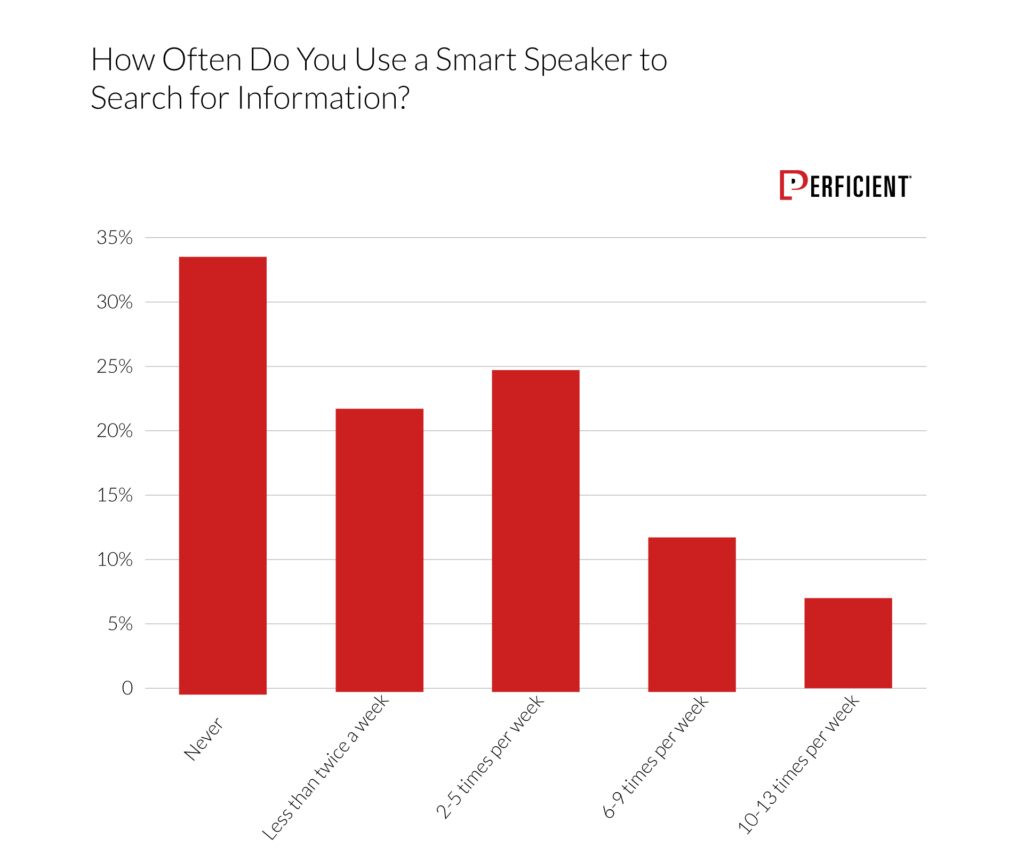
As such, marketers and SEOs need to understand and optimize for voice search in content.
Most voice searches are in the form of questions, so one of the main ways to optimize for VSEO is by answering the questions people are asking.
This is where more AI SEO tools will help you rank.
For example, tools like Frase help you create VSEO optimized content by showing you the questions searchers are asking. You can then create content around these questions.
Similarly, GrowthBar surfaces frequently asked questions from around the web. It does so by scraping elements of the Google SERP as well as other large data sets from around the web.
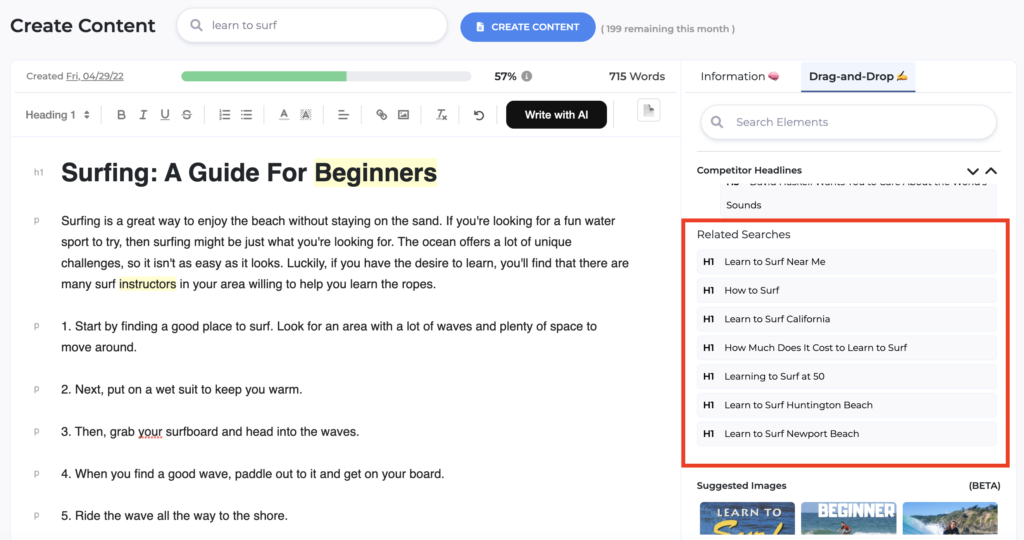
Finally, because voice search is so conversational, use AI-powered tools like Grammarly and Hemmingway to help you create more conversational content by recommending tone changes and highlighting hard to read passages.
Is AI the Future of SEO?
In short, yes, AI is the future of SEO.
As search engines become more sophisticated and better able to understand the intent behind user queries, they will increasingly rely on AI-powered technologies to deliver the most relevant results. This means that SEO professionals will need to become familiar with AI in order to stay ahead of the curve.
Use AI for:
- Keyword research
- SERP analysis
- Writing content
- Optimizing webpages
- Voice search
- And translating content into foreign languages

